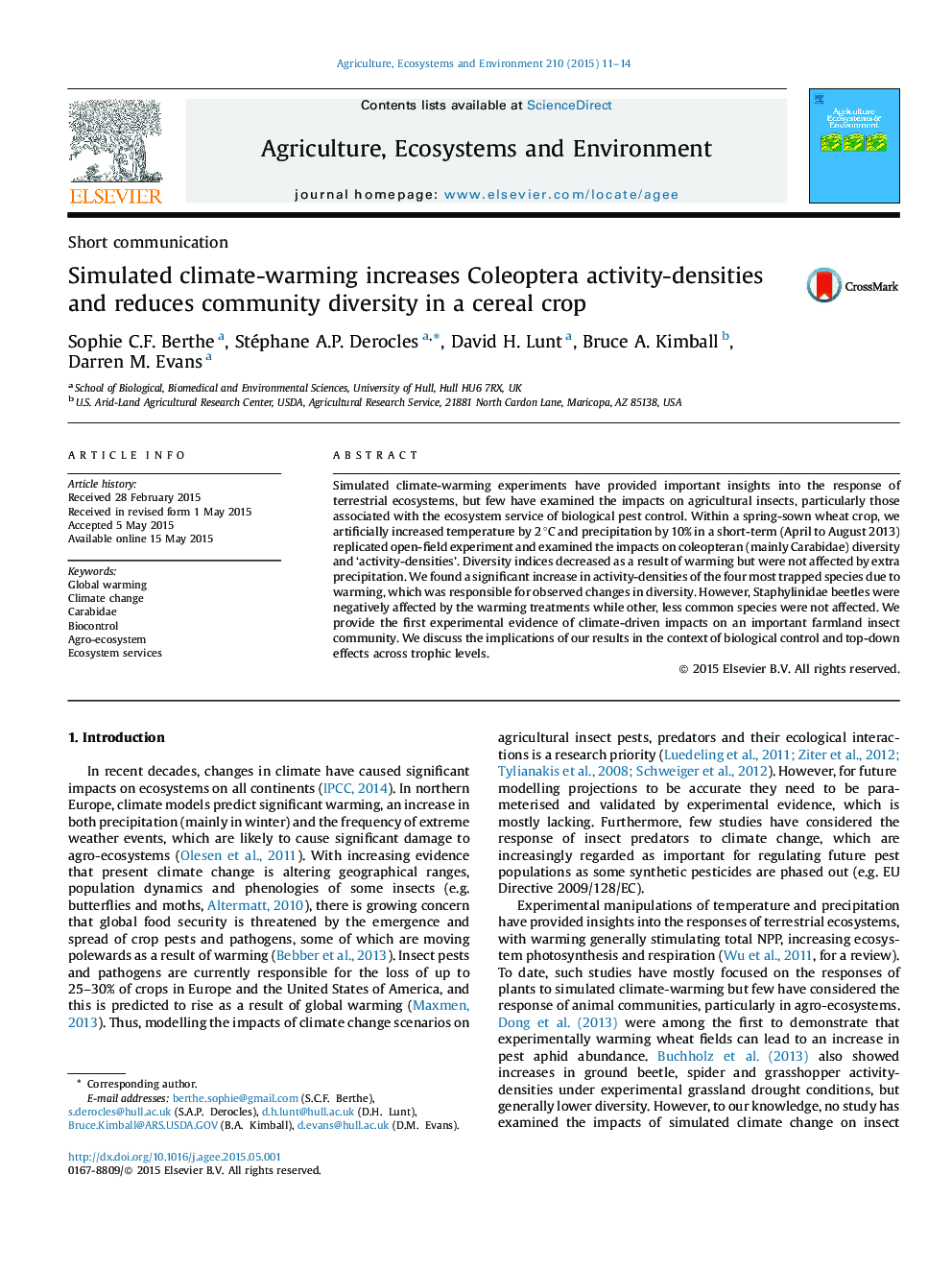| Article ID | Journal | Published Year | Pages | File Type |
|---|---|---|---|---|
| 2413702 | Agriculture, Ecosystems & Environment | 2015 | 4 Pages |
•We artificially increased temperature and precipitation in a wheat crop.•Warming positively affected beetle activity but reduced community diversity.•Additional precipitation did not affect the coleopteran community.•Climate-warming may have implications for the biological control of pests.
Simulated climate-warming experiments have provided important insights into the response of terrestrial ecosystems, but few have examined the impacts on agricultural insects, particularly those associated with the ecosystem service of biological pest control. Within a spring-sown wheat crop, we artificially increased temperature by 2 °C and precipitation by 10% in a short-term (April to August 2013) replicated open-field experiment and examined the impacts on coleopteran (mainly Carabidae) diversity and ‘activity-densities’. Diversity indices decreased as a result of warming but were not affected by extra precipitation. We found a significant increase in activity-densities of the four most trapped species due to warming, which was responsible for observed changes in diversity. However, Staphylinidae beetles were negatively affected by the warming treatments while other, less common species were not affected. We provide the first experimental evidence of climate-driven impacts on an important farmland insect community. We discuss the implications of our results in the context of biological control and top-down effects across trophic levels.
